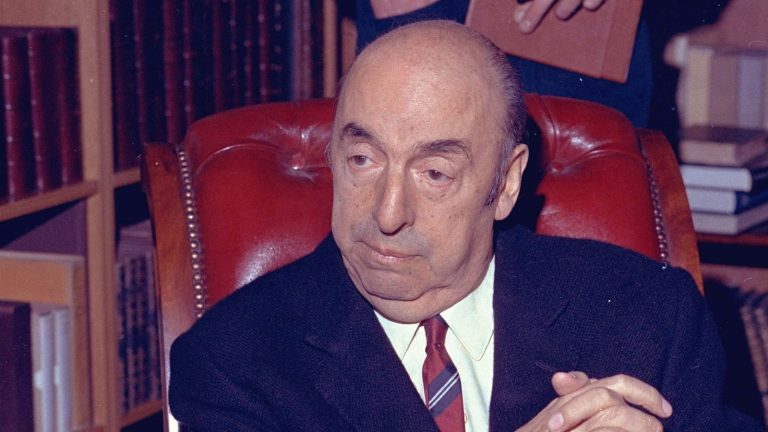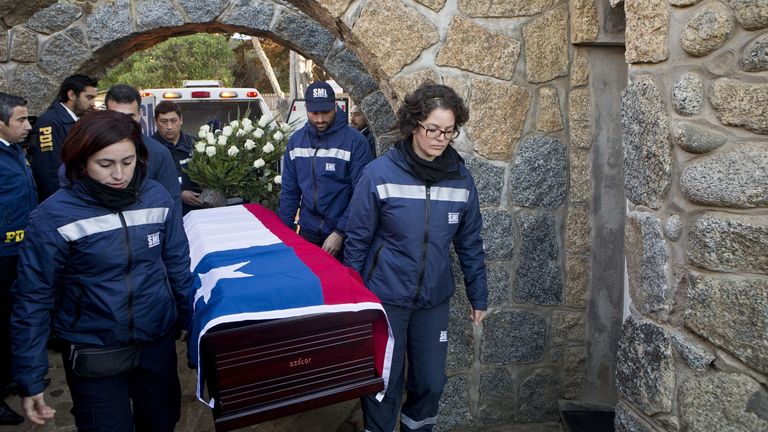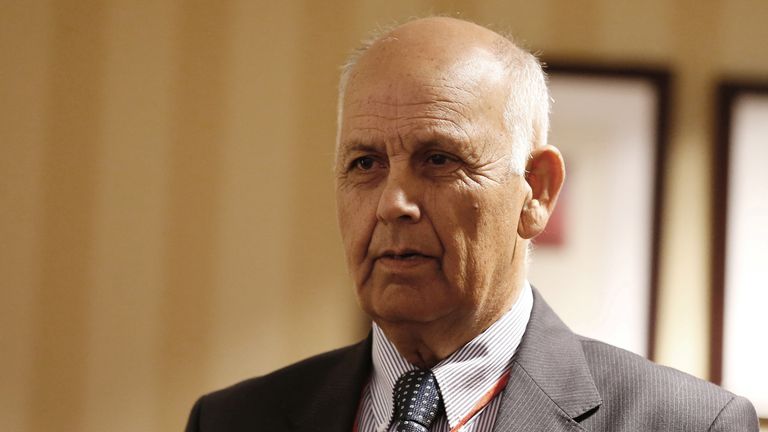The investigation into the mysterious death of a poet in Chile has been reopened.
Pablo Neruda was a Nobel Prize winner, and complications from prostate cancer were listed on his death certificate when he died in 1973.
He died 12 days after the military coup that overthrew his close friend, President Salvador Allende, and put General Augusto Pinochet in power.
For decades, his driver, Manuel Araya, argued that the poet was poisoned, and last year, forensic experts uncovered evidence supporting this theory.
Tests conducted in Danish and Canadian laboratories indicated that “a large amount of Clostridium botulinum” was found in Neruda's body.
The strong poison is incompatible with human life and can cause paralysis of the nervous system.
Last December, a judge rejected a request by Rodolfo Reyes, Neruda's nephew, to reopen the case and look for other causes of death – but in the Court of Appeal on Tuesday, that decision was overturned.
A written analysis of his death certificate will now be carried out, and evidence will be sought from bacteriological experts.
Neruda's body was exhumed in 2013 for further investigation, and two years later, the Chilean government said it was “very likely that a third party” was responsible.
He has since been reburied at his favorite home overlooking the Pacific Coast.
Read more from Sky News:
A Trident missile falls into the ocean
YouTuber imprisoned for child abuse
Neruda, best known for his love poems, had planned to go into exile after the Pinochet coup, where he could have been an influential voice against the dictatorship.
One day before his departure, the poet was transported in an ambulance to a clinic in Santiago where he was being treated for cancer and other diseases, and he died there.
Suspicions about the dictatorship's involvement in the death remained long after Chile's return to democracy in 1990.



